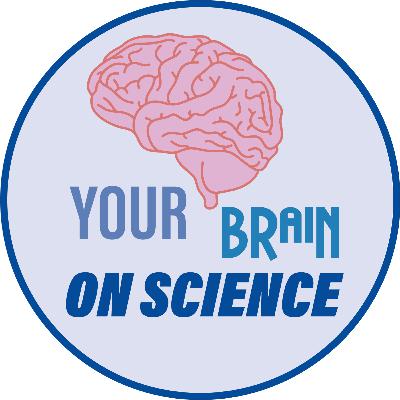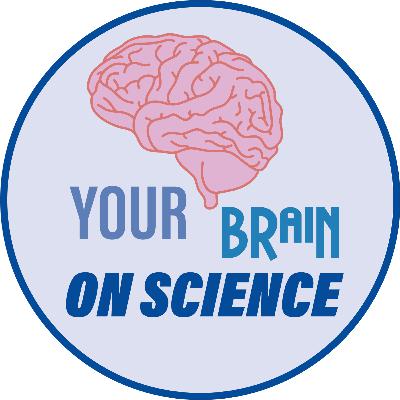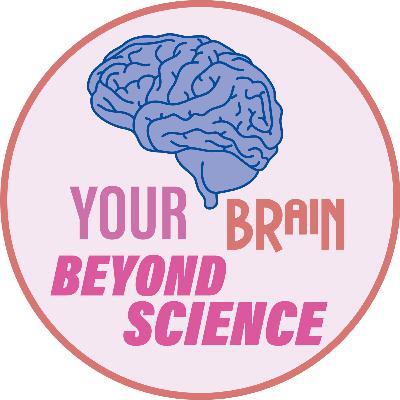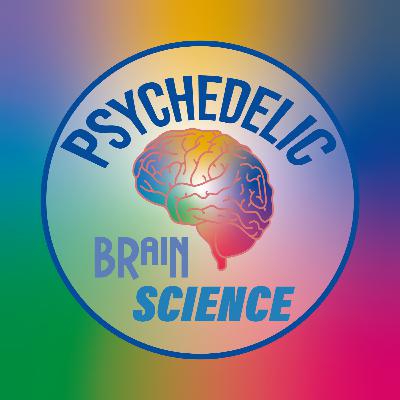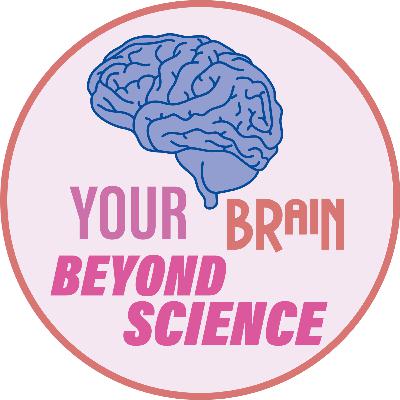Discover Psychedelic Brain Science
Psychedelic Brain Science

Psychedelic Brain Science
Author: Psychedelic Brain Science
Subscribed: 46Played: 204Subscribe
Share
© Psychedelic Brain Science
Description
Psychedelic Brain Science is a multimedia approach dedicated to bringing scientific, psychological, anthropological, and cultural information as it relates to psychedelics. Join scientists Alaina M. Jaster, PhD and Zarmeen Zahid, PhD as they work to provide better understanding of the ongoing research about psychedelics.
Content only reflects opinions of the authors and does not reflect the opinion of others or author affiliations.
Content only reflects opinions of the authors and does not reflect the opinion of others or author affiliations.
62 Episodes
Reverse
Dr. Alaina Jaster is joined by Brooke Sanders, MS, a translational neuroscientist focused on understanding epigenetic impacts of synthetic cannabinoids on the human genome. She is also a Content Advisor for Students for Sensible Drug Policy.They discuss a variety of projects Sanders is involved in including:Assessing social aspects of cannabis use in adolescentsMS project studying epigenetic changes following synthetic cannabis administrationHarm reduction and drug policy at the national and international level including her experience speaking at the United NationsIs Cannabis a Psychedelic Episode: https://open.spotify.com/episode/2ttrtyHJcwZbtkKkx3BvyN?si=W0i88lhyRmKZoSmb-104aQCannabis and California Sober ft. Dr. Grinspoon: https://open.spotify.com/episode/0MPaF0ru4ZF2QUztqAugCZ?si=30PG-m2FSDCX8wgPhXqiswPsyChild Database: https://www.psychild.info/Other resources related to the episode: https://drive.google.com/drive/folders/1sp-BaLozZN6FCHuEYAyNdM5hiokiKtX-?usp=sharing
Dr. Alaina Jaster is joined by child and adolescent psychiatrist Dr. David Sjöström who is at the University Hospital in Lund, Sweden. He is a current PhD candidate studying adolescent use of psychedelics and perceived effects on wellbeing. They discuss a variety of projects Sjöström is involved in including:Clinical trial exploring the effects of psilocybin in young adults (ages 16–35) with anorexia nervosa which was just recently received full approval.psiTWIN, a twin study examining how age, personality, set/setting, and the quality of the acute psychedelic experience influence outcomesPhD project assessing psychedelic experiences in adolescents in Sweden and BrazilFor access to the papers referenced in this episode: https://drive.google.com/drive/folders/1LNNKtTgDjLQNohKSKGHmwPb0PRxRD7oR?usp=sharing PsyChild Database: https://www.psychild.info/
The final episode of Season 4 of Psychedelic Brain Science discusses a recent preprint that gets at the heart of reproducibility in science. Dr. Jaster is joined by Berkeley PhD candidate Odilia Lu, Stanford researcher and professor Dr. Robert Malenka, and anesthesiologist and Stanford researcher Dr. Boris Heifets, all representing the laboratories involved in the Psychedelic Bay Area Animal Neuroscience Consortium; Psy-BAANC.Five laboratories performed the same experiments at Stanford, Berkeley and UCSF to test the acute and persistent effects of 2 mg/kg psilocybin on various behaviors that psychedelics have been proposed to affect in mouse models. Many of these methods have been featured in publications that have received a lot of media attention, but can be difficult to replicate. This body of work titled “A multi-institutional investigation of psilocybin’s effects on mouse behavior” can be found on BioRxiv here: https://www.biorxiv.org/content/10.1101/2025.04.08.647810v1
In this episode, Dr. Jaster is joined by Kayla Greenstien, a PhD candidate at the University of Sydney researching touch in psychedelic therapy. They'll define different types of touch, theoretical frameworks behind focused bodywork and the ideas surrounding consent to touch in psychedelic therapy. Given the nature of this discussion, there is mention of sexual assault, trauma and abuse so please listen with caution.For more of Kayla's works:https://kaylagreenstien.com/https://medium.com/@kgreenstienA starting point for history on Esalen:https://press.uchicago.edu/Misc/Chicago/453699.htmlHolotropic Medicine, Stan Grof’s Influence on MDMA Research Papers we touched on can be found here: https://drive.google.com/drive/folders/1Qy6iJ8Suur3JtUmI1yRo5x06gN7BVj0D?usp=sharing
On this weeks ISRP Speaker Spotlight Alaina is joined by psychologist and co-founder of the Open Psychedelic Evaluation Nexus (OPEN), Dr. Jason Luoma. They discuss evaluation of psychedelic assisted therapy in the real world following legalization in Portland, Oregon.Register for ISRP at https://www.ISRPsych.org to catch Dr. Luoma's presentation March 7 at 4:15 PM EDT / 1:15 PM PDT.For more about OPEN: https://www.openpsychedelicscience.org/Currently Recruiting in Oregon: https://www.openpsychedelicscience.org/longitudinalDr. Luoma's podcast "Research Matters": https://jasonluoma.com/researchmatters/
This weeks ISRP Speaker Spotlight is Alejo Acuña, a PhD student in Biology at the Neuroplasticity Unit of the Laboratorio de Neurociencias, University of the Republic, Uruguay. Alejo's project focuses on atypical psychedelic, Ibogaine, and how it can enhance ocular dominance plasticity in the mouse visual cortex, as part of a broader effort to understand its potential role in promoting brain plasticity. If you liked what you heard today, register for the virtual ISRP conference at ISRPsych.org. Alejo kicks off the conference at 11:10 EST / 8:10 PST!For research articles mentioned in the episode: https://drive.google.com/drive/folders/1QctEWR-rkofMkXRD7I6QoyRSoaMtg6xz?usp=drive_link
This episode is the first of three in our special ISRP Speaker Spotlight series. We've decided to showcase some amazing scientists that will be presenting at the virtual International Society for Psychedelic Research Conference March 7! It's not too late to register at: https://www.isrpsych.org/conferencesOur first feature is Kate Lawson, a PhD student at UC Irvine studying the persistent effects of stress in rodent models and how these negative effects may be reversed by psychedelics. We chat about ultrasonic vocalizations in rodents, the importance of translational models, and what mouse god smells like. For more about her research, register for ISRP and tune into her talk at 11:55am EDT / 8:55am PDT.
In this episode, Alaina discusses the evolving language about some of our favorite substances and how we got to the term psychedelic. In the first segment, she highlights some historical names for psychedelic substances in western medicine. In the second segment, she is joined by Stanford anesthesiologist and psychedelic researcher Dr. Boris Heifets to discuss how the scientific field classifies compounds as psychedelic and how to make sense of the psychedelic experience. For more on Dr. Heifets research:https://heifetslab.stanford.edu/publications/For more on the history and references discussed in the introduction:https://pubmed.ncbi.nlm.nih.gov/14761703/https://www.sciencedirect.com/science/article/pii/S0278584606000364https://psychiatryonline.org/doi/abs/10.1176/ajp.108.8.572https://academic.oup.com/ijnp/article/16/10/2165/652314?login=truehttps://marijuana-uses.com/mr-x/https://content.ucpress.edu/title/9780520285422/9780520285422_chapter1.pdfContent only reflects opinions of the authors and does not reflect the opinion of others or author affiliations.
This episode is the last of the Psychedelic Circuits mini-series! Today, Alaina gives a brief overview on circuits involved in stress responses. Then Dr. Devin Effinger deep dives into his work with the amygdala, paraventricular nucleus and how these regions send signals to relay important information about threat, stress and more. This circuit goes beyond just anxiety disorders and can also be implicated in substance use disorders.For publications of Dr. Effinger related to our discussion:https://drive.google.com/drive/folders/1kg0tH2iRxDbR6UyaVtg9DGHOf78GXwG_?usp=drive_link
This episode is the second installment of the mini-series focused on brain circuits outside of the typical frontal cortex conversation. Today, we hear from Alaina on the basics of pain and touch perception, as well as how our nerves send information to our brains. Alaina is then joined by Dr. Raul Ramos of UC Berkeley, an expert on studying sensory modalities who is now focusing their work on phenethylamine psychedelics, including DOI. This episode includes a special guest from a previous episode, talk about the clitoris, and the Grateful Dead. Resources discussed in this episode including papers, diagrams, and a very cool video can be found at this link: https://drive.google.com/drive/folders/12jTUQnRxCCVZ93nsysNMT0ANF2fTQ8Ug?usp=drive_link
This episode is the first of three in a mini-series focused on brain circuits outside of the typical conversations. Today, we hear from Alaina on the basics of how neurons talk to each other and a refresher on serotonin signaling. Alaina is then joined by special guest Tanner Anderson, a PhD candidate at University of Kentucky and soon to be postdoc at Yale. Tanner will discuss his recently published findings related to cortical excitability and this fun brain region called the claustrum.
Find his JUST PUBLISHED paper here: https://drive.google.com/file/d/1HAQcUFAuP5igAoa7FykWgT8tZXvuYbnK/view?usp=sharing
Welcome to season 4. In this two part episode, Alaina talks about the ongoing petition against the DEA's proposed rule to schedule DOI and DOC. In the first half of this episode, Alaina is joined by Elijah Z. Ullman, of the SSDP Science Policy Committee. They discuss the background and specific reasons why DOI and DOC should not be scheduled. In the second half of the podcast, Alaina is joined by Brett Phelps and Robert Rush, the legal counsel representing two of the three parties involved in the DEA case. For more information on SSDP visit: https://ssdp.org/For more information on our lawyers:https://rrushlaw.com/about/https://brettphelpslaw.com/Suggested reading on the topic:https://www.marijuanamoment.net/deas-move-to-ban-two-psychedelics-is-challenged-as-a-disservice-to-science-in-legal-filing-from-student-group/https://filtermag.org/block-dea-psychedelics-ban/https://www.aspet.org/docs/default-source/advocacy-files/aspet-dea-doi-and-doc-comments-1-12-2024.pdf?sfvrsn=62e172d3_0https://www.nature.com/articles/nrn3530Content only reflects opinions of the authors and does not reflect the opinion of others or author affiliations. Support this podcast: https://podcasters.spotify.com/pod/show/psychedelicbrainscience/support
Alaina is joined by physician, author, activist and educator Dr. Peter Grinspoon to discuss the use of psychedelics and cannabis in recovery, the stigma associated with drug use and the idea of "california sober."Have questions or want to read his book? Check out Dr. Grinspoon's website https://www.petergrinspoon.com/
Alaina and Zarmeen announce their hiatus for YBOS while they finish up their PhDs! Time flies when you're running a podcast and being a scientist full time... That being said, listen to them briefly chat about what they've been up to, where you can find them in the next few months and a few papers that recently came out (because even if they're busy, they still have to talk science DUH).
Check out the pubs referenced below:
STAR*D trial re-analysis: https://bmjopen.bmj.com/content/13/7/e063095
Zarmeen's Paper: https://pubmed.ncbi.nlm.nih.gov/37588757/
Psychedelic Commercialization: https://www.liebertpub.com/doi/10.1089/psymed.2023.0013
To bring this series full circle, Alaina does a quick summary of some of the current clinical and preclinical literature supporting using psychedelics for the treatment of various substance use disorders. Links to the studies references will be posted on our blog at psychedelicbrainscience.com/blog.
Alaina is joined by Dr. Albert Garcia-Romeu, a clinical researcher and associate professor at Johns Hopkins. They discuss some historical considerations of psychedelics, patterns of use, and how these compounds can be useful in treating unhealthy patterns in folks with Substance Use Disorders.
Alaina gives a quick and dirty breakdown about all things drug use. She breaks down the different definitions of drug abuse and drug use, discusses how psychedelics are different from other drugs and then talks about the possible ways psychedelics may be helping people with substance use disorders.
This week A & Z do a journal club style episode where they briefly discuss the rationale, methods and results of a recent psychedelic paper. The paper titled "Comparing neural correlates of consciousness from psychedelics to hypnosis and meditation" by Moujaes et al. at the university of Zurich explores the differences and similarities between pharmacological and non-pharmacological induced altered states of consciousness. Join A & Z as they deep dive into this very interesting publication.
Alaina is joined by fellow PhD candidate Abigail Calder to discuss her ongoing work on psychedelics including neuroplasticity and how we can measure that in humans, as well as the importance in understanding how subjective effects can be positive, negative, both or neither. Abigail is currently studying all of this and more at the University of Fribourg in Switzerland. To learn more about her ongoing study or to participate, please see the link below.
https://redcapmed.unifr.ch/surveys/?s=DKRTNATWMDHDCCWA
In this episode of YBOS, Zarmeen chats with former NHL player and now co-founder of Athletes for Care, Riley Cote. In their conversation Zarmeen and Riley talk about the unique challenges of being an NHL enforcer and what that meant for Riley during and after the sport. In their conversation, Riley details the healing he sought after his career and the role that psychedelics played in all of it.
Stay tuned in this series as there are more interesting stories to come! and check out our youtube for video content of this episode!
All content published by YBOS is solely the opinions of the authors and does not reflect the opinions of any parties affiliated with the authors or any additional third parties.


